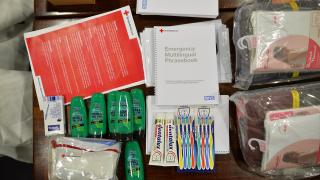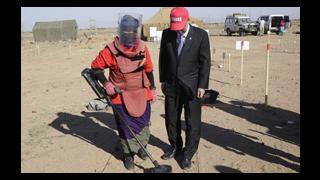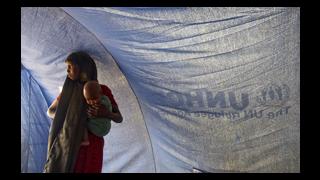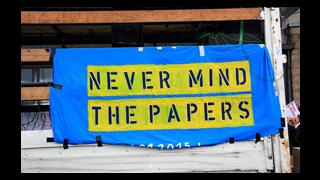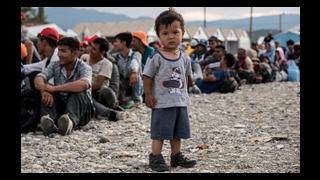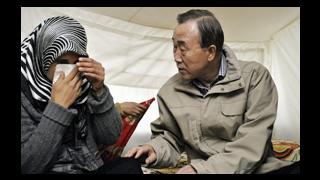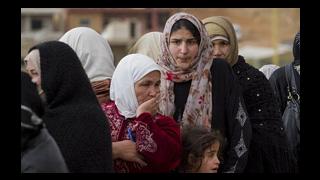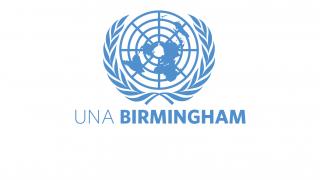
Jeremy Greenstock is Chairman of UNA-UK and former UK Permanent Representative to the United Nations
The UK’s response to the growing pressure of migration into and within Europe is normally regarded as a domestic issue. Concerns about immigration lie at the heart of the British debate about Europe, and make the outcome of the 23 June referendum on UK membership of the European Union highly uncertain. But the core issues are as much external as national.
The world is fragmenting, which means each nation, group or individual is tending to make subjective decisions about their immediate interests with increasing disregard for collective considerations. The UK has long been one of those countries which sees the value of an effective international system, because of its history of involvement at the global level, especially in trade, and because it has developed the skills and the machinery to make such a system work. When the British are on form, any international meeting gains from their involvement.
These geopolitical trends, including conflict arising from state breakdown, have piled on the pressure over migration. The communities of the EU – as much as any region – focus on their local concerns, to the extent that the EU can barely discuss the issue rationally, at a time when a collective answer is most needed. An appeal to values – care for the starving and dispossessed, the need to address inequality – is not enough to trump the natural tendency to resist sharing hard-won resources with strangers when the numbers are so high.
The UK is one of the few countries with a real capacity to understand the need for cooperation on big problems at the wider level. We must not leave ourselves out of the search for a collective solution to the migration problem. For a start, we will not protect ourselves by shutting our doors and our minds to it. But just as important, we can help our allies, partners and neighbours to forge a route to some answers.
The case for doing this could be made in value terms, and UNA-UK exists to connect UN-sanctioned values with UK policy-making. But values on their own are not winning the argument in a more selfish world. Interests also matter. So I would like New World readers to connect this edition on refugees and migration with UNA-UK’s response to the UK’s National Security Strategy and Strategic Defence and Security Review.
We argue there that the EU’s migration challenges, including in Europe’s southern and eastern neighbourhood, have a significant impact on British national security. I am convinced, from my experience as a diplomat and UN specialist, that almost without exception an international initiative to remedy conflict or improve international security is stronger when the Brits are fully contributing. If effort and resources have to be expended, the longer-term payback justifies them in terms of a safer, fairer and economically sounder world with which to do business.
This is where I most admire the contribution of the UNA fraternity in the UK, delivering enthusiasm and momentum when values and interests come together. You are constantly pointing out to policy-makers why the universal standards of good behaviour enshrined at the UN need to apply to UK decisions, and why policies that appear to address only our narrow national interests are unlikely to be productive.
Immigration of course cannot be open-ended, and governments – as the Germans, for instance, have come to realise – need to show that arrangements for it are properly controlled. But the UK has long benefitted from fresh blood coming into the country, already runs a comparatively tolerant society and needs to retain its strong global connections. I find the arguments for playing an open and generous role on this issue overwhelming, and I hope that UNA-UK members and supporters will raise their voices in this direction.

